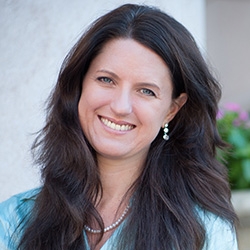

Search Results: asking
-
Yvette Erasmus suggests that making peace with our feelings reduces suffering. Sometimes we want to hurry through our feelings and just feel better.
-
Miki Kashtan explores how to respond to group conflict wisely when you’re not directly involved.
-
Trainer Tip: Q: How do we get the love we want? A: Ask for it.
-
Trainer Tip: Q: How do we get the love we want? A: Ask for it.
-
Trainer Tip: Q: How do we get the love we want? A: Ask for it.
-
Exploring how to stay connected with yourself and others when conversations feel too wordy.
-
Learn to tell needs from strategies in parenting with two simple questions for clarity.
-
Trainer Tip: Notice if something within your agency will bring you the serenity you want. If not, then notice the needs you are trying to meet by wanting to take that action. Then then choose another action that's more likely to have the desired effect.
-
Dear Friends,
Have you ever found yourself in a situation where you could not see a good option, no matter how hard you looked? Or have you ever done something you felt ashamed or embarrassed about and struggled to release the shame?
Recently, I was telling a childhood story to some friends. It had us all laughing (a very welcome moment!), and it also got me reflecting about honesty and authenticity. Here’s the story:
-
“Nonviolence” is not just a political tactic. It is a “soul force,” a courageous and compassionate stand in the face of what seems to us unjustly unequal, oppressive, and violent. It is the force of love meeting and transforming what appears to not be love.. It is the force of love meeting and transforming what appears to not be love. It is speaking and listening with courage, compassion, and an open heart and mind and rooted in our truth in a way that bridges understanding. And doing so without demand nor trying to convince -- all in the face of any anger, fear, oppression, inequality, violence or disagreement.
-
- Learn your body’s “language” and how to listen deeply to it
- Expand your NVC toolbox with emergency self-empathy tips
- Explore drawing on your senses to get past what is blocking you
- Discover and practice that “missing step” in the NVC process
-
Learn Somatic Self-Empathy to manage yourself with clarity and compassion.
-
Trainer Tip: One of the basic philosophies of Nonviolent Communication is valuing everyone’s needs equally. That means that you consider your needs to be equal to another person’s needs. If someone asks you for empathy, and you choose to empathize at you own expense, you're not living in a Nonviolent Communication consciousness. Be aware of your own needs today when someone asks you to be their emotional support.
-
Trainer Tip: Use conflict with others as a way to learn more about yourself.
-
Explore Self-Empathy with a unique four-step process ending in gratitude.
-
Listen to Jim and Jori Manske share how we are conditioned to disconnect from our own feelings and how we can unlearn this habit to experience more full and rich inner lives.
-
Trainer Tip: Most of us have been conditioned to withhold the expression of our feelings to some degree. Mary offers a tip to de-stigmatize our feelings and relax into our humanness.
-
Trainer Tip: Do you ever feel certain that other people see things the way you do, only to find out they don’t? Read on.
-
Learn to teach from intention, rooted in NVC principles and your audience’s real-world needs.
-
Trainer Tip: There's often a large gap between what we experience, and the story we make up about it. Noticing how our judgments and assumptions cloud our observations can be critical to creating a connection with others and maintaining a Nonviolent Communication consciousness.
Quick Links

Stay in Touch!
We value your privacy, won't share your email address and you can easily unsubscribe any time.




















